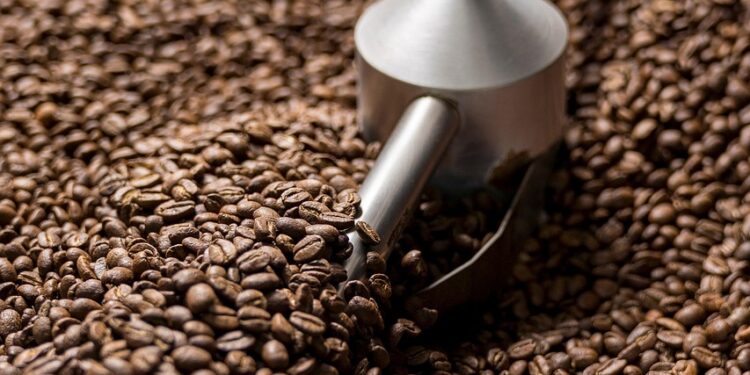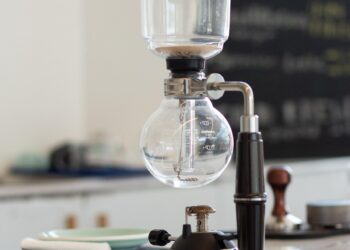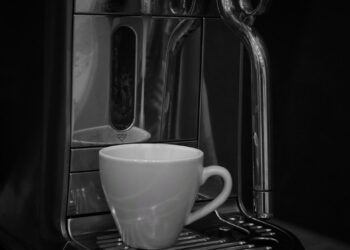Mastering the Art of Espresso Machines: A Guide for Coffee Enthusiasts
Espresso is more than just a coffee drink; it’s a culinary experience that embodies the essence of coffee at its most intense. Mastering the art of espresso machines can seem daunting, but with the right knowledge and tools, you can harness the sophisticated technology of these machines to brew the perfect cup every time. From understanding the intricate mechanics to choosing the right beans, this article will guide you through all you need to know about espresso machines, ensuring an enriching experience for both beginners and seasoned coffee lovers.
Understanding Espresso Machines: Types and Mechanisms
What is an Espresso Machine?
An espresso machine is a device that forces hot water through finely-ground coffee under high pressure, typically at 9 bars, to make espresso—a concentrated coffee beverage. Modern espresso machines are marvels of design and efficiency, ranging from manual to semi-automatic, automatic, and super-automatic, each catering to different levels of expertise and convenience.
Types of Espresso Machines
- Manual Espresso Machines: These require you to manually grind the coffee, tamp the grounds, and pull a lever to generate the pressure for extraction.
- Semi-Automatic Espresso Machines: These automate the water pressure and temperature, allowing you to focus on the coffee grinding and tamping.
- Automatic Espresso Machines: They automate timing the water flow but still leave room for you to grind and tamp your coffee.
- Super-Automatic Espresso Machines: These are the most user-friendly, handling every step of the espresso-making process from grinding the beans to tamping and brewing.
Understanding the type of espresso machine that suits your needs is crucial, as each offers different levels of control and types of user experience.
Selecting the Right Espresso Machine
Choosing the perfect espresso machine depends on multiple factors including budget, convenience, and how much control you want over the brewing process. Here are some tips:
- Research Brands and Reviews: Brands like Breville, DeLonghi, and Gaggia are renowned for their quality. Read customer reviews and expert opinions.
- Consider Your Usage: Evaluate how frequently you plan to use your machine. Daily users might lean towards automatic or super-automatic models for convenience.
- Check for Essential Features: Look for a machine with a powerful boiler or thermoblock, a sturdy portafilter, and programmable settings if you prefer more control.
Essential Tips for Using Espresso Machines
Grinding the Coffee
The grind size for espresso is crucial; it should be fine but not too powdery. Consistent grinds allow even extraction and prevent channeling where water bypasses the coffee grounds. Investing in a quality burr grinder will help achieve the ideal grind size.
Tamping
Tamping evenly compacts the coffee into the portafilter and affects water flow through the coffee grounds. Apply firm, even pressure using a tamper. This step takes practice to perfect but is vital for a quality espresso.
Maintenance
Regular maintenance ensures the longevity and performance of your espresso machine. This includes:
- Descaling: Scale buildup from water can impair machine function if not regularly removed.
- Cleaning the Group Head and Portafilter: Daily cleaning prevents oil buildup and ensures great-tasting espresso.
- Replacing Water Filters: This helps maintain the purity of the water and protects the machine’s internal structures.
Solving Common Espresso Machine Problems
Even with the best care, espresso machines can exhibit issues. Here are solutions to some common problems:
- Poor Espresso Flavor: Check if the beans are fresh, ensure the grind size is correct, and that the machine is adequately heated up.
- Espresso Extracts Too Fast or Too Slow: Adjust the grind size — finer for slower extraction, coarser for faster.
- Machine Leaks: Often caused by worn out seals or loose connections. Check and replace seals or consult with a professional.
Frequently Asked Questions (FAQs)
Q1. How often should I descale my espresso machine?
Ideally, descale every 2-3 months, but this can vary based on your water hardness and machine usage.
Q2. Can I use regular coffee beans in an espresso machine?
Yes, but for best results use beans labeled ‘espresso’ as they are roasted specifically for espresso brewing.
Q3. What is the ideal water temperature for espresso?
The ideal temperature is about 90-96 degrees Celsius (194-205 degrees Fahrenheit).
Wrapping Up
Mastering the art of using espresso machines doesn’t just elevate your coffee brewing skills; it transforms your approach to coffee as a whole, enhancing each sip with a deeper appreciation of the flavors and complexities. Whether you opt for a manual or a super-automatic espresso machine, the key to mastering this craft lies in understanding the equipment, the coffee, and the brewing process. Embrace the journey of becoming a home barista, and revel in the art and science of brewing the perfect espresso.
Experiment with different beans, refining your techniques, and most importantly, enjoy the process. Each cup of espresso you brew is a step closer to mastery.





